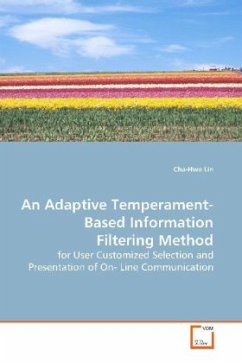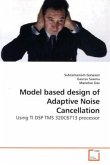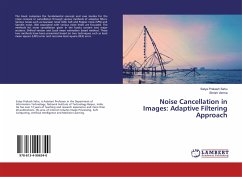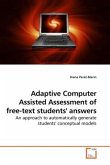One of the main limitations of information filtering
is its inability to specify and support human
factors to satisfy the user. Temperament-based
information filtering model was proposed in our
earlier study as a solution to characterize the
information space by taking human factors,
particularly human temperament, into consideration.
In this study, a prototype system was developed and
demonstrated in two application domains - a document
collection and an art image collection by utilizing
a combination of simulation and user-studies
testing. The results of our experiments indicate
that temperament-based filtering outperforms content-
based filtering in most of the cases. Being
empowered with the knowledge of human temperament,
the management of the conceptual cohesiveness
between the disordered information space presented
by a computing system and the user''s recognition of
the real world may be enhanced, and the goal to
better satisfy the user may be achieved.
is its inability to specify and support human
factors to satisfy the user. Temperament-based
information filtering model was proposed in our
earlier study as a solution to characterize the
information space by taking human factors,
particularly human temperament, into consideration.
In this study, a prototype system was developed and
demonstrated in two application domains - a document
collection and an art image collection by utilizing
a combination of simulation and user-studies
testing. The results of our experiments indicate
that temperament-based filtering outperforms content-
based filtering in most of the cases. Being
empowered with the knowledge of human temperament,
the management of the conceptual cohesiveness
between the disordered information space presented
by a computing system and the user''s recognition of
the real world may be enhanced, and the goal to
better satisfy the user may be achieved.







